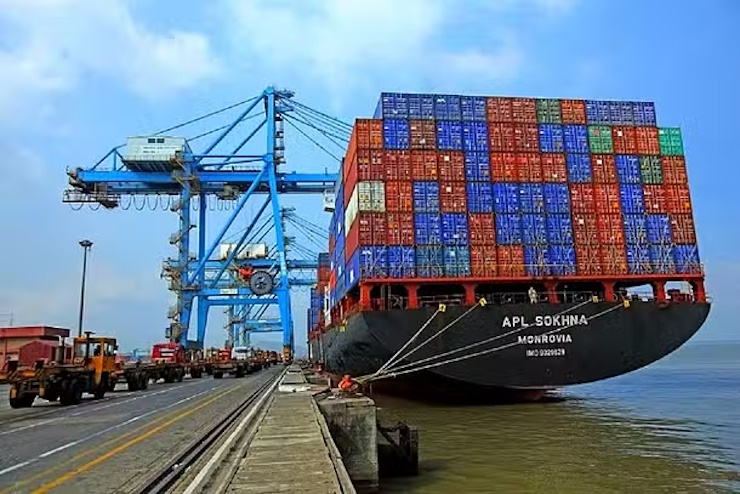Indian Govt To Volkswagen: Why Have You Evaded Tax Of 11,846 Crore?


In a move that could send shock waves through the auto industry, the Indian government has served a 1.4 billion US dollar tax notice on German car giant Volkswagen’s India operations. The notice has also asked the company as to why it should not be penalized over and above the 1.4 billion USD tax demand for allegedly cheating the government. And the notice wasn’t served yesterday or today, but on the 30th of September 2024, say Reuters who put this exclusive out earlier today. After the Reuters report went live, Volkswagen shares tumbled 2.13 % on Germany’s Frankfurt stock exchange.

Skoda Auto Volkswagen India said,
It’s been more than 2 months since this customs tax notice was served on Skoda Auto Volkswagen India Private Limited (SAVWIPL is Volkswagen’s Indian subsidiary). Instead of paying the Indian government 2.35 billion US dollars in customs duty, SAVWIPL is said to have paid only $981 million, leading to a shortfall of 1.36 billion US dollars.
The notice from the Maharashtra Customs Department asks Skoda-Volkswagen India to explain why they evaded tax of Rs. 11,846 crore (1.4 billion US dollars), by ‘willfully’ misrepresenting semi-built cars (known as completely knocked down units) as spare parts at the time of import.
Importing a car through the CKD kit route (in semi-assembled form) attracts 30-35 % import duty. However, importing car parts attracts a import duty of just 5-15 %. The idea behind this rule is to encourage local manufacturing that provides thousands of jobs to Indians. Importing through the CKD route means that car companies will have to assemble the partially assembled car into fully built cars before selling them in India, and this is labour intensive.

Now, if a company decides to scam the Indian government by importing semi-assembled cars (CKDs) and lies to the government (customs officials) that it has only imported parts rather than semi-assembled cars, then it gets to save a lot of money as it has to pay merely 5-15 % import duty rather than 30-35 % duty. The factory (assembly facility) will still run, people will still be employed, but the only big change will be that the company saves roughly 20-30 % tax that it should have otherwise paid the Indian government as import duty.
This is exactly what the Customs Department of Maharashtra is accusing SAVWIPL of. Skoda (the company that handles VW’s Indian operations) is said to have imported high-end Volkswagen (Tiguan), Skoda (Kodiaq and Superb) and Audi (A4 and A6) cars through the CKD route, but instead of paying 30-35 % duty on these kits, has paid just 5-15 % duty by wrongly declaring that it’s importing parts instead of semi-assembled cars.

In a very smart way. Now, let’s dive a little deeper to understand the anatomy of this alleged scam.
Say you’re a car company who wants to assemble cars in India through the CKD (completely knocked down) route.
Step 1: You have to import all the parts (roughly 700 to 1,000 parts required to put the car together at your assembly factory in India) under a single invoice, or at least in a way that Indian customs can value your import as a single shipment of parts.
Step 2: Then you’ll have to declare to customs officials that you’re importing these parts into India to specifically assemble them into fully built cars.
Step 3: When these parts are shipped together into India, customs will charge you a duty of 30-35% at the port of entry (usually a harbour as parts generally arrive in ships).
Step 4: Customs will release these parts after you pay the 30-35 % import duty, post which the parts can be trucked to your factory.
Now, here is the genius of this alleged scam. I mean this is as smart as Dieselgate, and software is involved.

Let’s say you have a software that places an order for all the parts needed to assemble a car, in a single shot. SAVWIPL alleged placed such an order.
The software will then break this single order into multiple orders, and send it to multiple global suppliers in various countries around the world. SAVWIPL allegedly used such a software.
Multiple global suppliers from various countries will then ship parts to you in India, in multiple ships, under multiple invoices. However, the software will schedule shipments in such a way that multiple shipments from multiple suppliers arrive together, or nearly together.
As a company, this is good for you, as you can quickly collect parts and ship them to your facility to be assembled into full cars. The customs department alleges that SAVWIPL did this.
When customs asks you, what these parts are for, you simply say that these are individual parts and not meant for building CKD cars, and show multiple invoices as proof of this.

So, customs officials will simply charge you 5-15 % instead of 30-35 % import duty. This looks like an invoicing scam, where single invoice means CKD import, and multiple invoices means individual part imports (Non-CKD import).
Maharashtra customs has alleged that SAVWIPL did this, and evaded import duty to the tune of 11,846 Crore or 1.4 billion US dollars. It’s now demanding that the company pay this amount and make good the loss to the Indian government’s exchequer.
Now, when customs officials question you on why you brought in parts through multiple invoices, you simply say that you didn’t do it but your software did. You say that you’re using a software that automatically figures out that splitting an order into many parts is the best approach to get a shipment from point A to point B in the fastest and most affordable way. Customs officials aren’t buying your argument. They aren’t buying SAVWIPL’s argument either.
Maharashtra Customs officials are saying that SAVWIPL is not in the business of logistics but in the business of building cars, and logistics is a very small part of the overall process. Here are some excerpts from the customs notice,

If the customs department doesn’t find SAVWIPL’s reply to the tax and penalty notice satisfactory, they may not just recover the tax but also demand that the company pay a penalty of up to 100 % of the original tax demand. The stringent penalty is meant too deter future offenders.
If found guilty of wrongdoing, SAVWIPL may have to pay the Indian government a whopping 2.8 billion US dollars or about 25,000 crore rupees. This will easily be the biggest fine that the Indian govt has imposed on a multinational operating in India. It will certainly sound the death knell for Volkswagen’s Indian operations if this ‘worst case scenario’ pans out.
Some trivia. The biggest tax notice that the Indian government slapped on a multinational company involved UK telecom giant Vodafone, who was served a 2 billion US dollar notice, and an additional 700 million notice in penalties and interest charges. Vodafone contested this notice from 2007, and eventually won in arbitration in 2020. However, the company quit the Indian market by selling out to its local partner Idea.
Volkswagen is already in financial trouble in Germany, and has even shut down factories to trim costs. Any adverse ruling against SAVWIPL will only make Volkswagen’s life harder, and could even result in the group breaking apart given the current economic climate in Europe.
Shareholders are very likely to veto Mahindra’s proposed joint venture with Volkswagen-Skoda if SAVWIPL is found guilty. They wouldn’t want Mahindra to get involved with a company that may have to pay nearly 3 billion US dollars in taxes and fines to the Indian government. Clearly, we haven’t heard the last of this story!